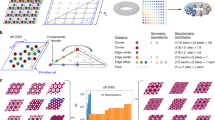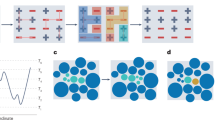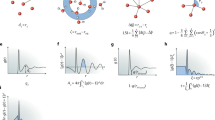Abstract
WE have recently had occasion to survey critically the sparse literature concerned with the theory of azeotropes and have been led to the conclusion that the most general, albeit formally exact, thermodynamic treatment is of little practical use1,2. Logical extension of the statistical thermodynamic treatment of strictly regular solutions3 indicates that azeotropes formed by such solutions would obey the empirical rules of behaviour of real azeotropes which have been advanced by Timmermans, Merriman and Wrewsky. Moreover, we find that closely approximate relations between N2, P and T (N2 being the mol fraction of component 2), derivable from the treatment, do in fact describe the behaviour of many of the azeotropic systems which have been experimentally studied.
This is a preview of subscription content, access via your institution
Access options
Subscribe to this journal
Receive 51 print issues and online access
$199.00 per year
only $3.90 per issue
Buy this article
- Purchase on Springer Link
- Instant access to full article PDF
Prices may be subject to local taxes which are calculated during checkout
Similar content being viewed by others
References
Redlich and Schutz, J. Amer. Chem. Soc., 66, 1001 (1944).
Kireev, Acta Physicochimica U.R.S.S., 14, 371 (1941).
Fowler and Guggenheim, "Statistical Thermodynamics" (1939).
Author information
Authors and Affiliations
Rights and permissions
About this article
Cite this article
COULSON, E., HERINGTON, E. Theory of Binary Azeotropes. Nature 158, 198–199 (1946). https://doi.org/10.1038/158198b0
Issue Date:
DOI: https://doi.org/10.1038/158198b0
Comments
By submitting a comment you agree to abide by our Terms and Community Guidelines. If you find something abusive or that does not comply with our terms or guidelines please flag it as inappropriate.



